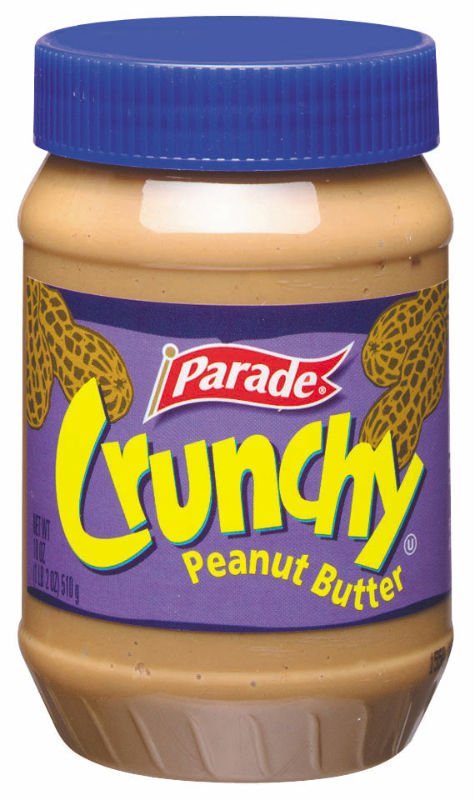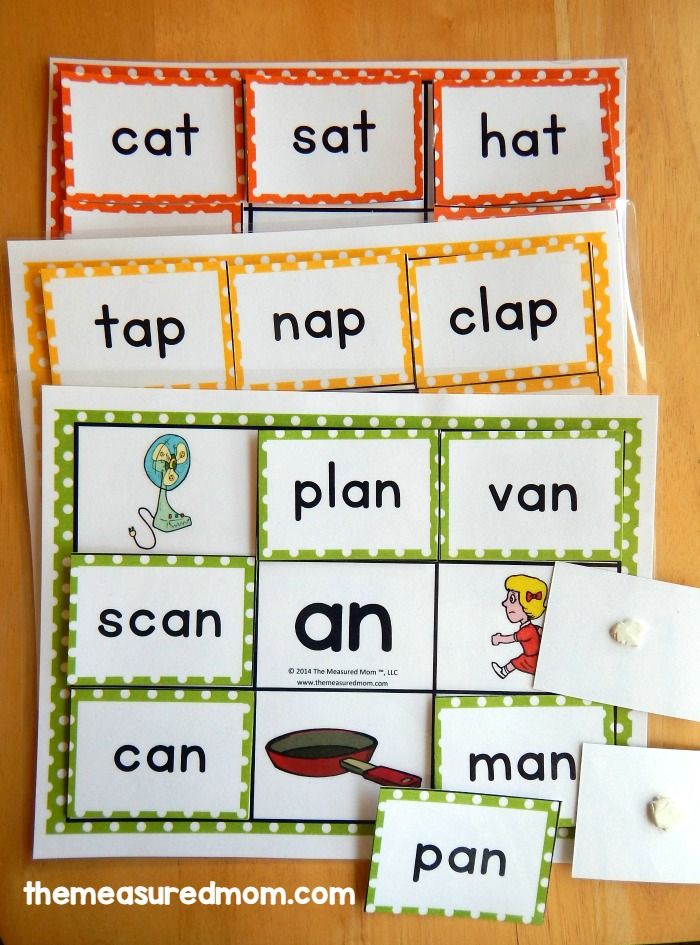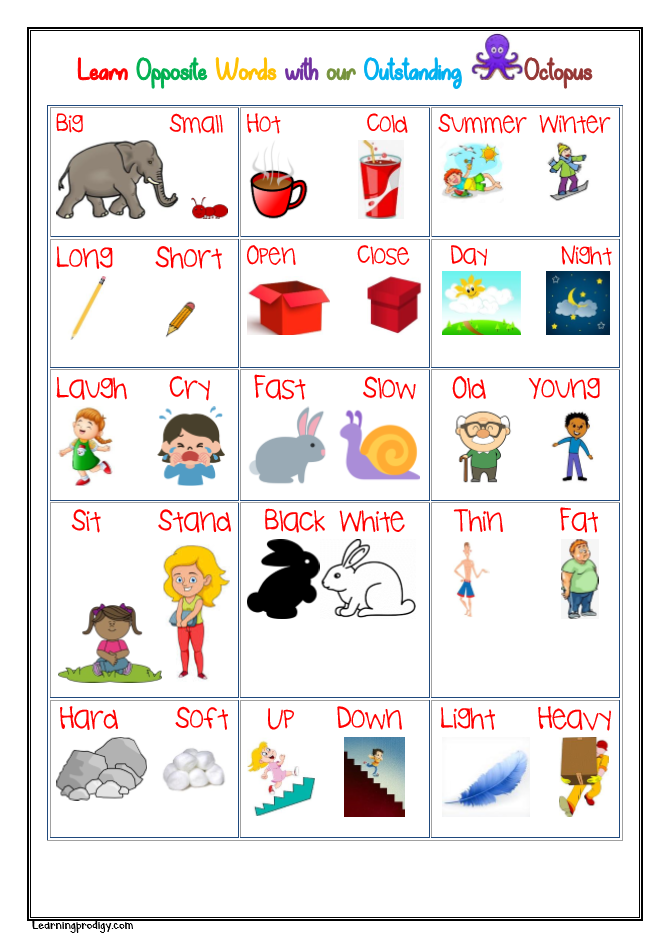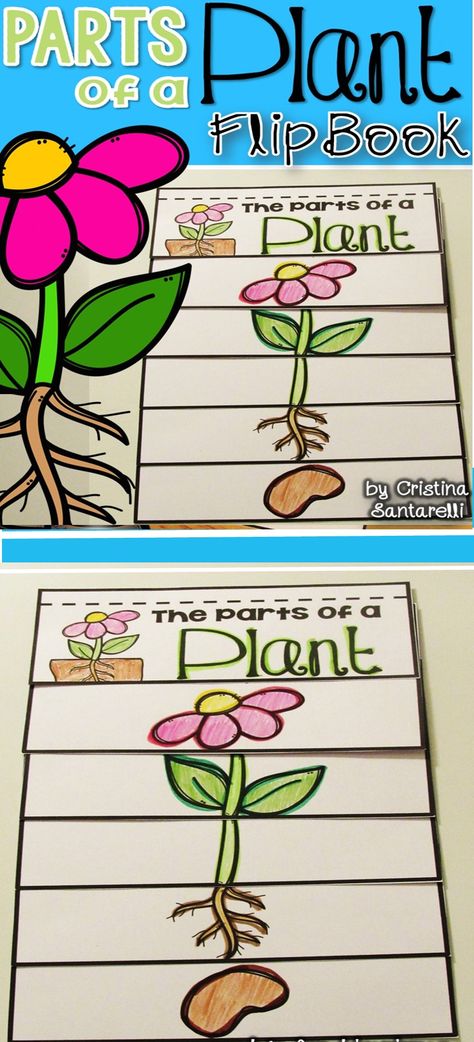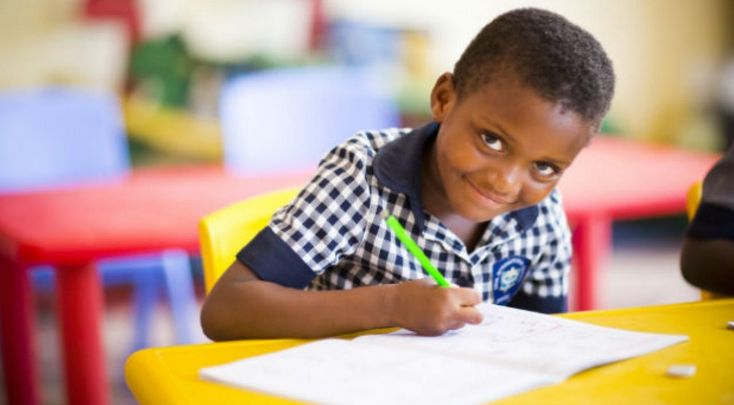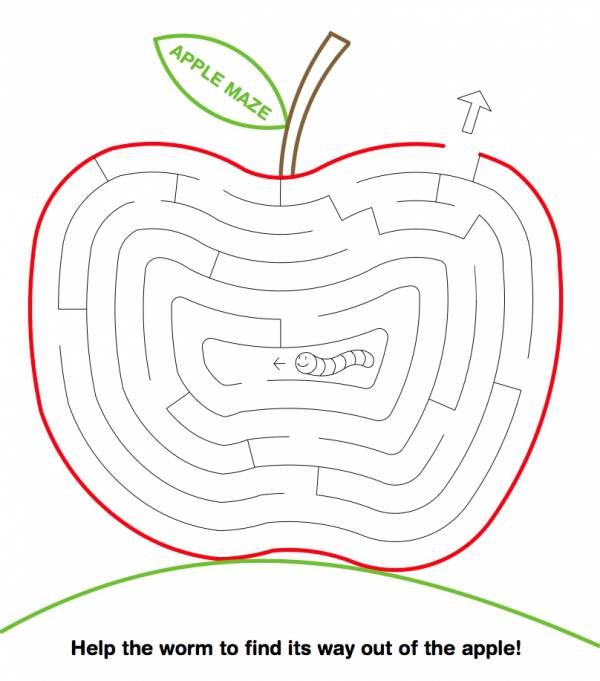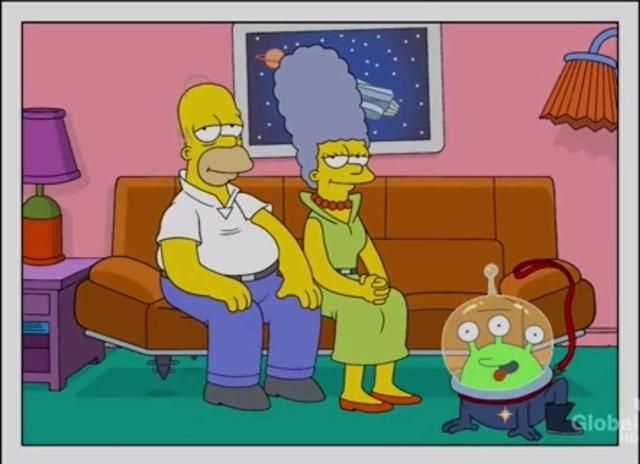Adjective definition for 3rd grade
Adjectives | 3rd Grade Grammar
So far you've learned that nouns are words for people, places, or things.
Adjectives are words that describe nouns.
Check out some examples:
slow snail
hot soup
happy girl
many turtles
taller tree
Can you spot the adjective in the sentence below? 👇
Tip: First find the noun. The word describing the noun is the adjective.
The little duckling quacked.
Duckling is the noun.
What adjective is describing the duckling?
That’s right! Little is the adjective. 🎉
Types of Adjectives
There are eight types of adjectives. They all have fancy names, but they're pretty easy to use.
Let's learn the eight types of adjectives. 😺 We'll cruise through them quickly. 🏄♀️
1. Descriptive Adjectives
That is a fast car.
That car is fast.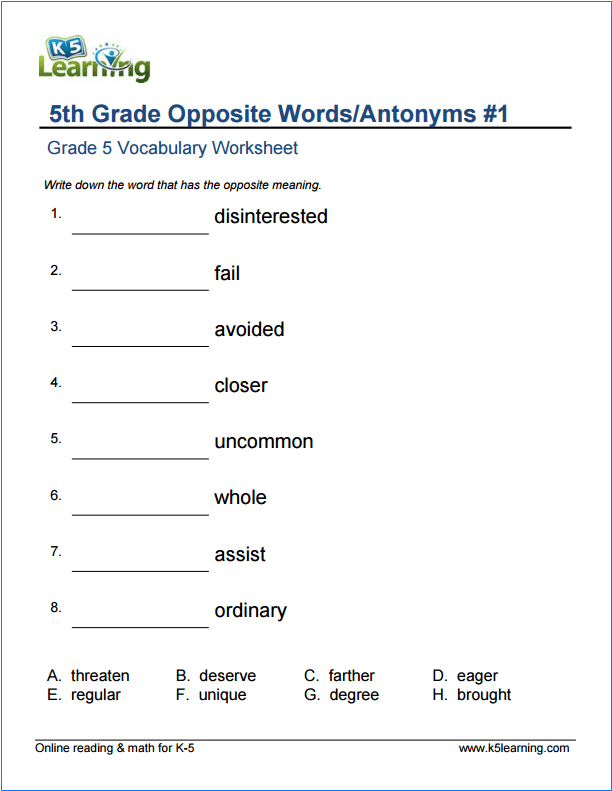
The happy boy laughed.
I am happy.
Descriptive adjectives describe how nouns look or feel.
Most adjectives are this type.
Adjectives can go before the nouns they describe.
The giant pizza went into the oven.
Adjectives can also go after linking verbs (like 'is', 'am', 'are' or sensory verbs like 'smells').
The pizza is giant.
The giant pizza smells delicious.
Both giant and delicious are adjectives that describe pizza. 👍
Tip: Some common nouns can be used as descriptive adjectives too. Take a look:
The history teacher gave a great talk.
The computer museum was awesome!
2. Quantitative Adjectives
I have ten toes.
That costs three dollars.
I ate the whole pizza.
Quantitative adjectives like 'ten' tell how many there are of something.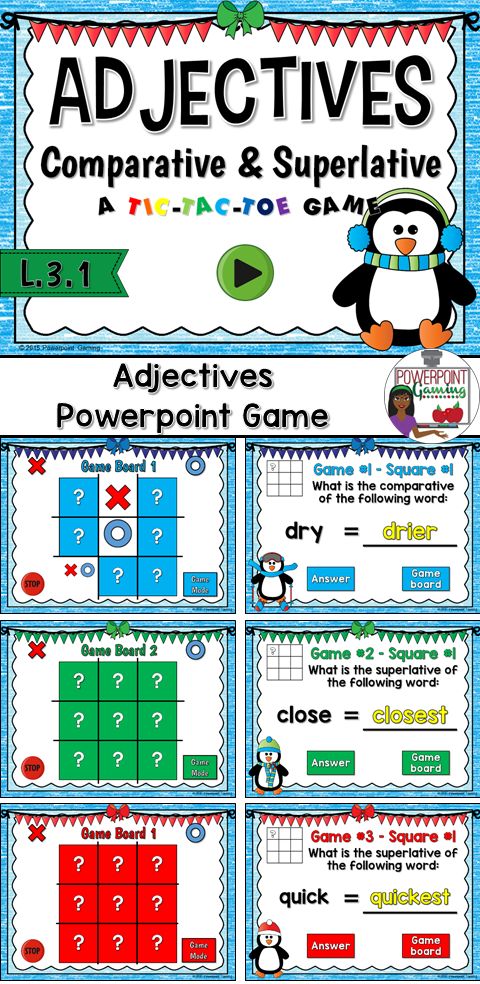
Tip: 'quantitative' means having to do with quantity, or how many there are.
3. Proper Adjectives
American food is delicious.
Italian cars are more exciting than German cars.
I love Burger Blitz burgers.
Proper adjectives are proper nouns that describe other nouns.
4. Demonstrative Adjectives
That tree is gorgeous.
This plant is tall.
Those trees are gorgeous.
These plants are tall.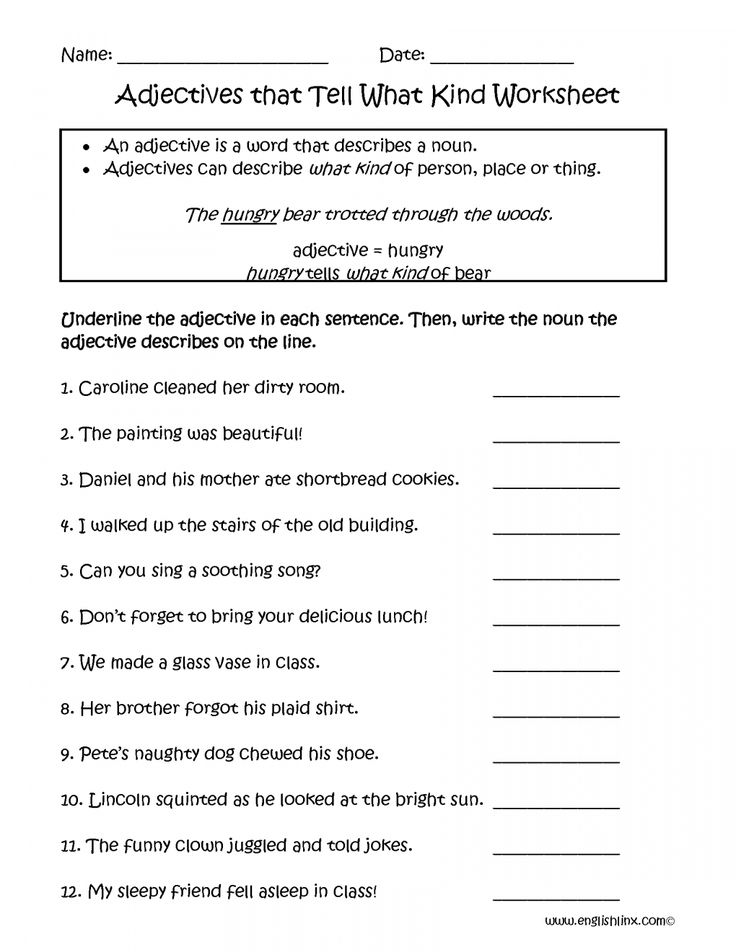
The four demonstrative adjectives are 'that', 'this', those', 'these'. They help you talk about a specific someone or something near or far.
5. Possessive Adjectives
Those are my speakers, Jim's chairs, his table, and her snacks. Your guests can invite their friends to our party.
Possessive adjectives show who owns a noun, like 'my', 'his', 'her', 'your', 'their', 'our', and possessive proper nouns like Jim's.
6. Interrogative Adjectives
Which chair would you like?
What movie do you want to watch?
Whose jacket is this?
The interrogative adjectives 'which', 'what', and 'whose' help you ask a question.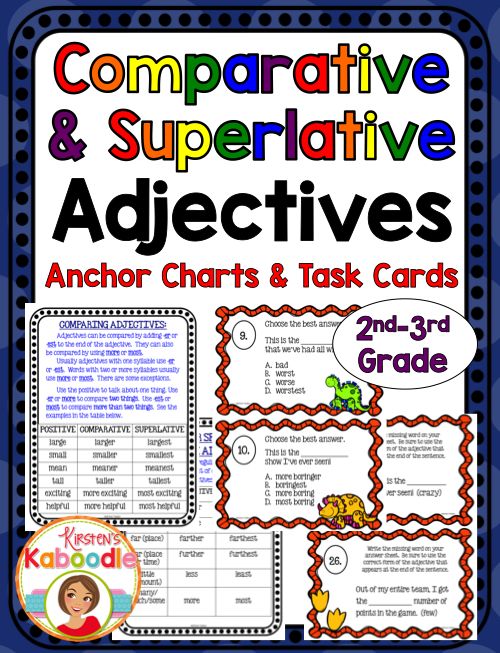
7. Indefinite Adjectives
I want some pizza.
It will be a few minutes.
Most people agree with you.
All of the students passed.
Indefinite adjectives, like 'few', 'many', and 'most', are similar to quantitative adjectives. They show how many there are of something, but don't say an exact number.
8. Articles
I saw a whale.
The whale jumped out of the ocean.
I was in an airplane.
Articles are the words 'a', 'an', and 'the'.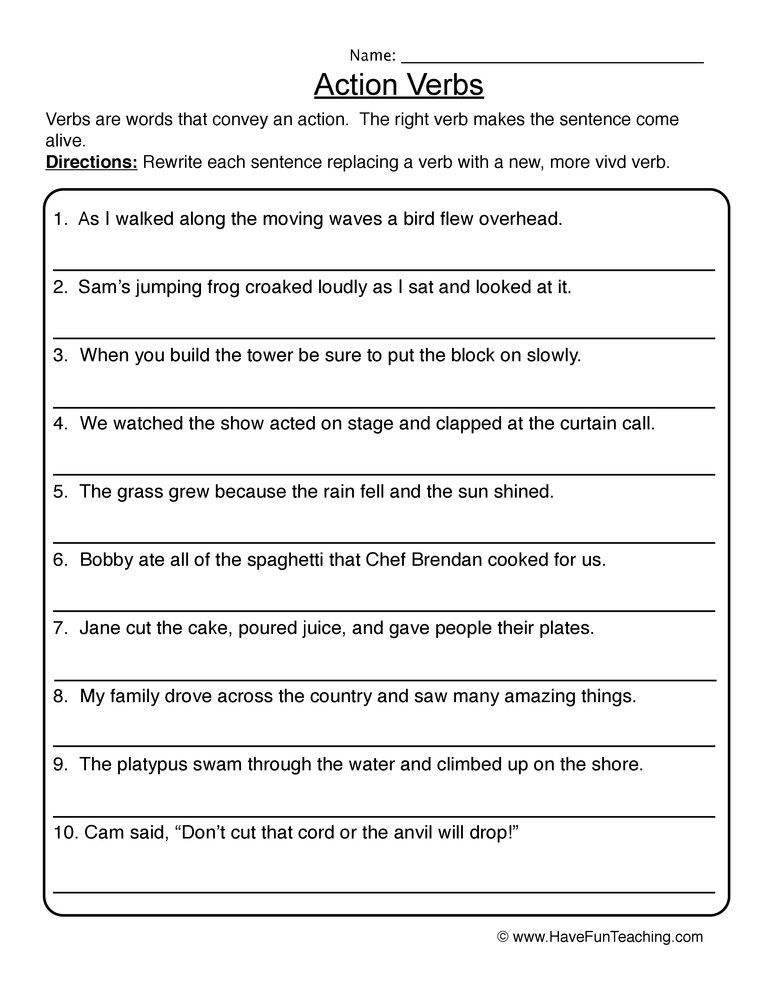 They are special adjectives that show if you're talking about a specific, or unspecific noun.
They are special adjectives that show if you're talking about a specific, or unspecific noun.
You'll learn more about articles in the next lesson. 👍
Spotting Adjectives
Can you spot the adjective in this sentence? 👇
The popcorn at the theater was salty!
Great! Salty is the adjective. It comes after the linking verb 'was' and describes the noun 'popcorn'. 🎉
Great job learning about adjectives!
Now, complete the practice. It'll help you remember for longer. 😺
Adjectives Definition, Worksheets & Types For Kids
Worksheets /English Language Arts /Literary Devices /Adjectives Definition & Worksheets
Premium
Not ready to purchase a subscription? Click to download the free sample version Download sample
Table of Contents
Adjectives are a part of speech that modify nouns, pronouns, and more.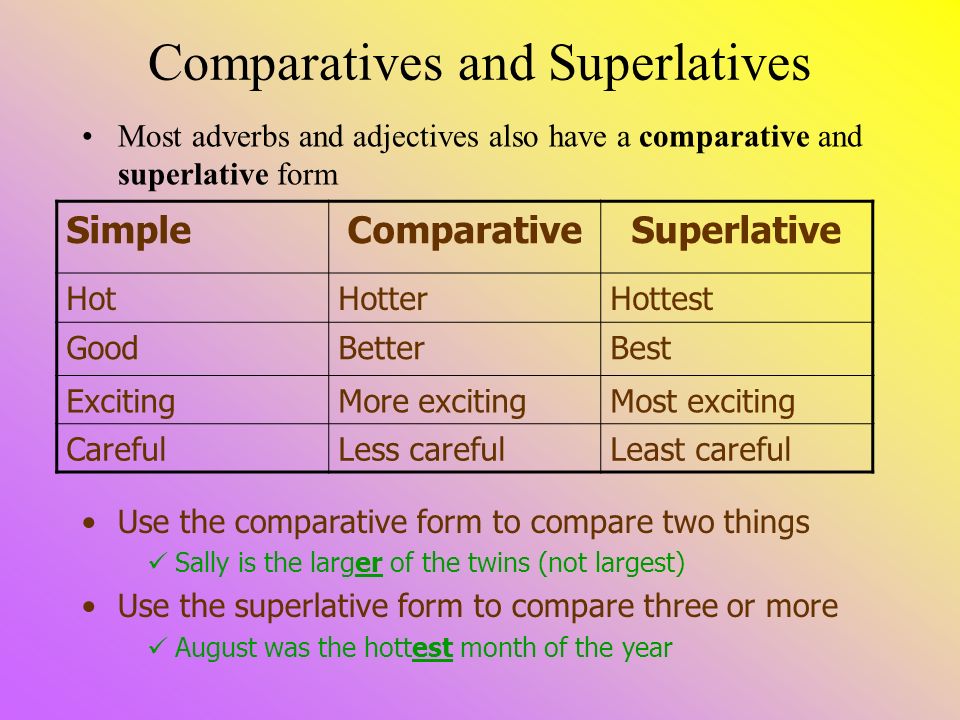 They allow for the description of what they are modifying, therefore forming a more vivid image of what is being described.
They allow for the description of what they are modifying, therefore forming a more vivid image of what is being described.
See the fact file below for more information on the adjectives or alternatively, you can download our 25-page Adjectives worksheet pack to utilise within the classroom or home environment.
Key Facts & Information
TYPES OF ADJECTIVE
- Descriptive adjectives
- Name a quality of a noun or pronoun that they modify
- The cat is white.
- The carpet is fluffy.
- Name a quality of a noun or pronoun that they modify
- Proper adjectives
- Derived from a proper noun
- I am an American citizen.
- I love eating Japanese food.
- Derived from a proper noun
- Limiting adjectives
- Define and restrict the noun they modify
- That car is parked askew.
- There were many mosquitoes in the yard.
- Define and restrict the noun they modify
- Interrogative adjectives
- Modify by asking a question
- Whose bag is this?
- What time should I be there?
- Modify by asking a question
- Coordinate adjectives
- A group of adjectives separated by a comma
- It was a warm, sunny day.
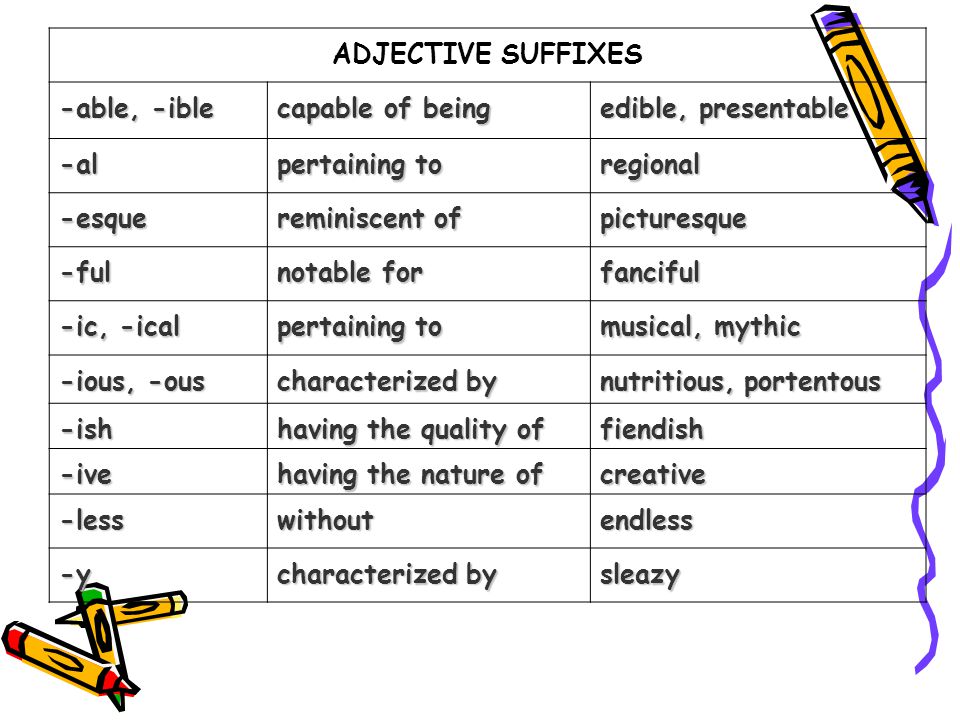
- It was gloomy, rainy day.
- It was a warm, sunny day.
- A group of adjectives separated by a comma
- Compound adjectives
- Consist of two or more words that function as a unit.
- The use of a hyphen depends on the position of the compound adjective. If the compound adjective is placed before a noun, a hyphen is used. If the noun precedes the adjective, a hyphen is not necessary.
- It’s a well-known book that many people have read.
- She is studying a book from the nineteenth century.
- Determiners as adjectives
- Articles (a, an, the)
- Cardinal numbers (one, two, three)
- Ordinal numbers (first, second, third)
- Possessive pronouns (my, our, your, his, her, its, their)
- Relative pronouns (whose, which, whichever)
- Demonstratives (this, these, that)
- Indefinite pronouns (any, each, other, some)
- Possessive proper nouns (John’s, Jane’s)
- A series of adjectives should follow a proper sequence
- opinion, size, physical quality, shape, age, colour, origin, material, type, purpose
This is a fantastic bundle which includes everything you need to know about the adjectives across 25 in-depth pages.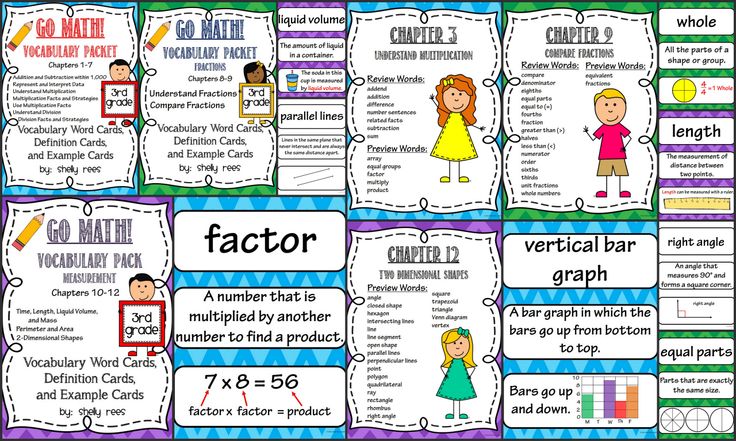 These are ready-to-use Adjectives worksheets that are perfect for teaching students about the adjectives which are a part of speech that modify nouns, pronouns, and more. They allow for the description of what they are modifying, therefore forming a more vivid image of what is being described.
These are ready-to-use Adjectives worksheets that are perfect for teaching students about the adjectives which are a part of speech that modify nouns, pronouns, and more. They allow for the description of what they are modifying, therefore forming a more vivid image of what is being described.
Complete List Of Included Worksheets
- Adjectives Facts
- Search
- Pick Me
- You Complete Me
- Pictionary
- Time Capsule
- Exposition
- Word Search
- Group Up
- Identifiers
- Lined Up
Link/cite this page
If you reference any of the content on this page on your own website, please use the code below to cite this page as the original source.
<a href="https://kidskonnect.com/language/adjectives/">Adjectives Definition & Worksheets: https://kidskonnect.com</a> - KidsKonnect, August 3, 2021
Link will appear as Adjectives Definition & Worksheets: https://kidskonnect. com - KidsKonnect, August 3, 2021
com - KidsKonnect, August 3, 2021
Use With Any Curriculum
These worksheets have been specifically designed for use with any international curriculum. You can use these worksheets as-is, or edit them using Google Slides to make them more specific to your own student ability levels and curriculum standards.
How to identify adjectives? | Lesson plan in the Russian language (grade 3) on the topic:
Khammadova Alfiya Abdullovna
primary school teacher
MBOU "Kulaevskaya secondary school" Pestrechinsky municipal district of the Republic of Tatarstan
branch of MBOU "Karpovskaya primary school" 903 903 Pestrechinsky municipal district of the Republic of Tatarstan
Synopsis of the Russian language lesson. 3rd grade
Topic “How to identify adjectives?”
Objectives:
Educational - to teach to recognize adjectives among other parts of speech; determine the lexical meaning of adjectives; form phrases with adjectives.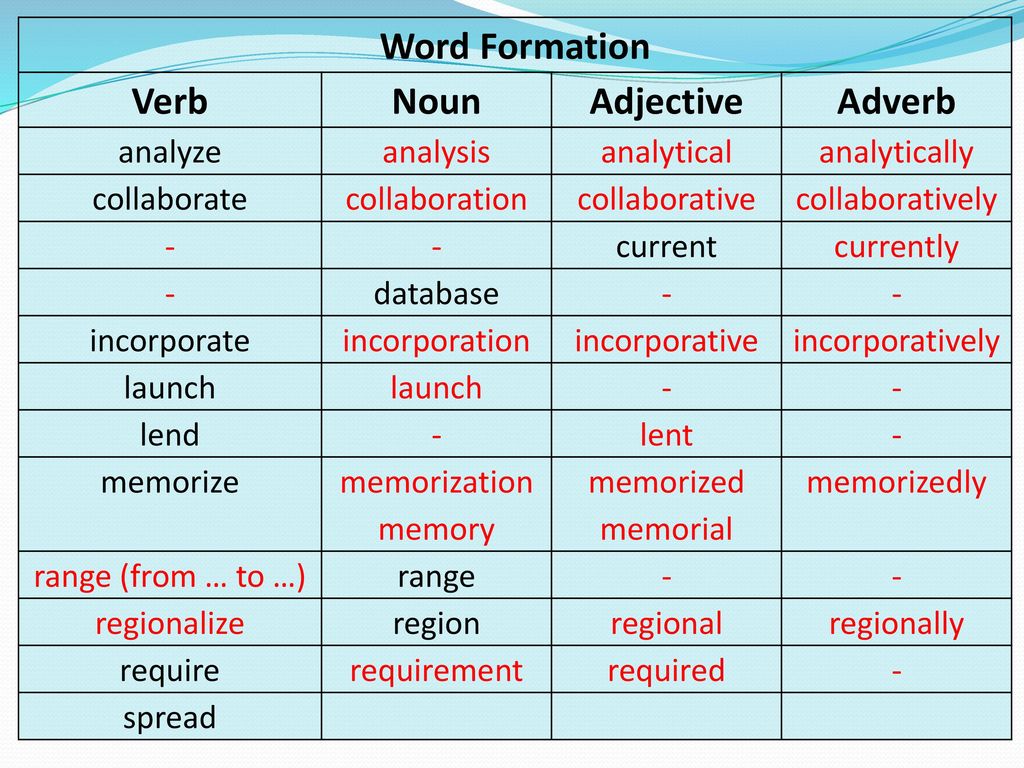
Developing - to develop logical thinking, memory, attention, observation.
Educators - to cultivate interest in the Russian language.
Type of lesson: learning new material.
Lesson resources: textbook "Russian language", V.P. Kanakina, V.G. Goretsky, grade 3, part 2; workbook; PC; presentation for the lesson; task cards, drawings.
I. Organizational stage.
a) Let's start the Russian language lesson.
- Raise your hand, those who know how to listen and hear. What are these guys called?
- Arise, those who know how to live together, without quarrels. What is your name?
- Are there guys among you who are always ready to help? What are they called?
- Stand up those who are interested in learning something new. What are you called?
- What part of speech words were used in the answers?
-What are we going to study? (Adjective)
b) A minute of calligraphy
-Read in unison what is written on the blackboard.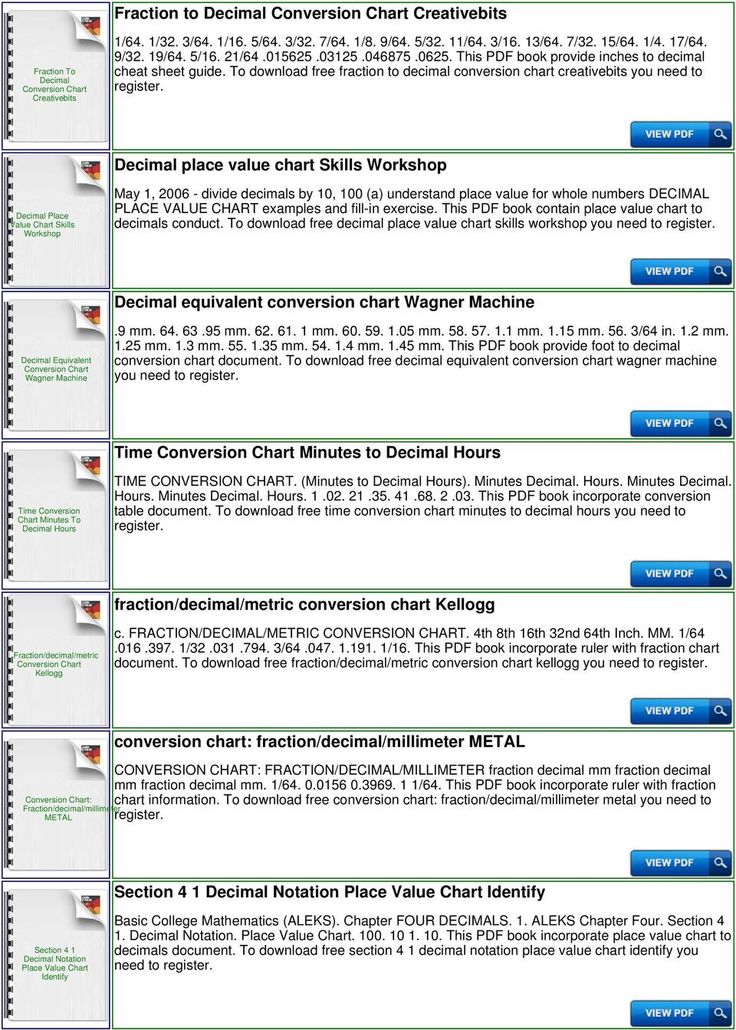
The eighteenth of February.
Cool work.
aya, ya, oy, oy, oy, oy, her, oy, ie
-What does the last line remind you of? (endings of adjectives)
-Write it down in your notebook
II. Goal setting, updating knowledge
- Open the textbook. (p. 64) Formulate the topic of the lesson.
Lesson topic "How to identify adjectives?" (Slide 1)
-What is the purpose of our lesson? (Slide 2)
- Recall what you know about the adjective.
(A cluster is drawn up on the board)
? ? ? ? ?
Part of speech
Which one? Which one? Which one? Which one? Sign of the subject
-Check according to the textbook (p. 64, rule) whether everything is written correctly on the board.
- Do we know everything about the adjective? Let's try to discover something new today.
III. Discovery of new knowledge.
a) - I suggest doing exercise 110 Read how to do it. Write down the text.
-What part of speech do the words you inserted belong to?
-Read the text again.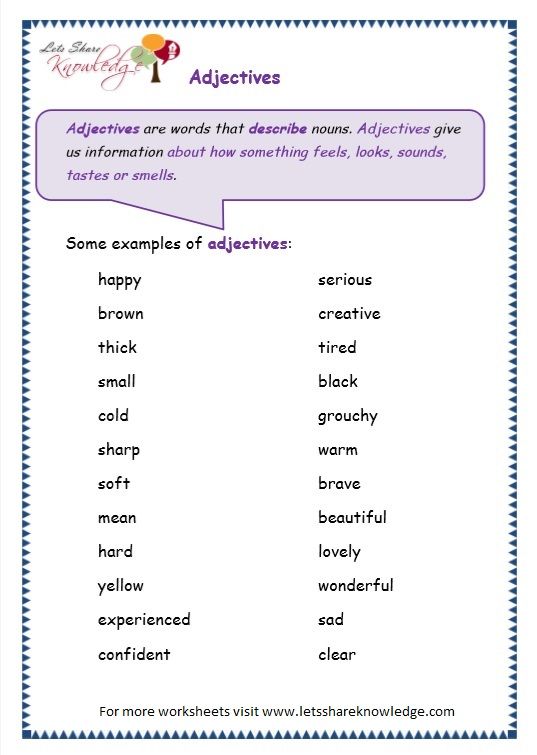 How has the text changed?
How has the text changed?
Output1. Adjectives make speech more accurate, bright, colorful.
- Let's go back to the cluster, write down - decorate speech
b) -Now let's observe. There is a picture in front of you. Your task is to choose the appropriate adjectives from the proposed adjectives and write them down. (Task number 1)
-Read the words. What did you do? (Choose words that describe the picture)
Conclusion 2. Adjectives describe objects
-Let's write on the blackboard - describe objects.
Decorate speech
What?What? What? What?
Sign of an object (color, size, shape ...)
- What season is it now? Spring will start soon. Try to describe the snow. (Task number 2) It is necessary to write down the words in 2 columns.
-Check (1 student reads aloud) Draw a conclusion.
Pin 3 . Adjectives are needed for the accuracy of the description.
c) Exercise 111
-What part of speech do these words refer to? Prove it.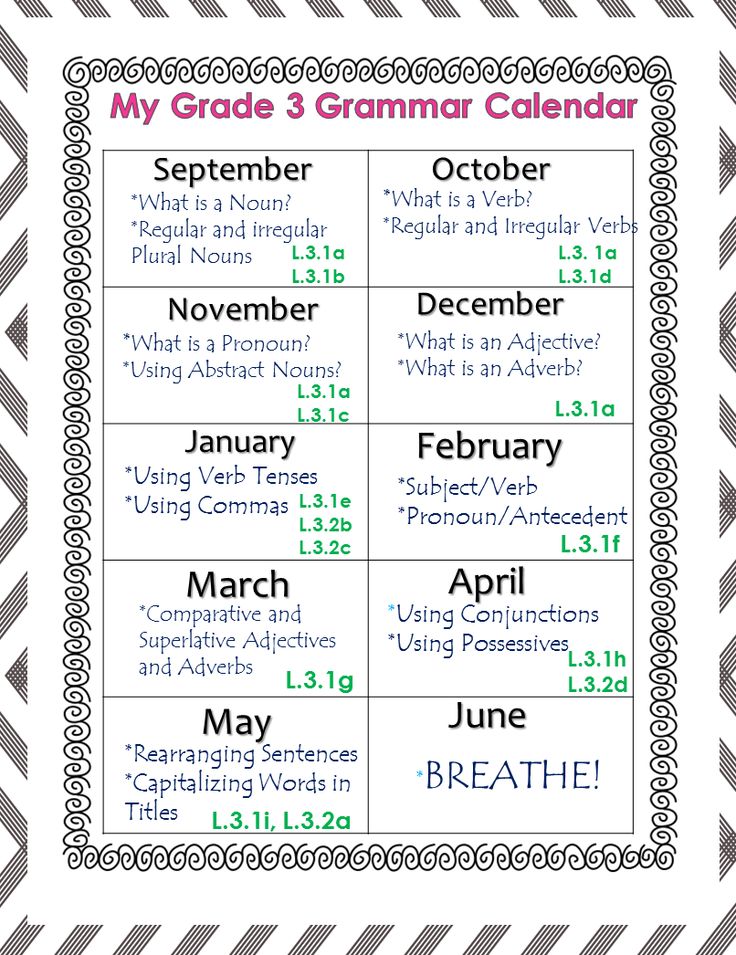 Read the phrases. List the endings of adjectives.
Read the phrases. List the endings of adjectives.
- What groups according to lexical meaning can these adjectives be divided into?
Conclusion 4. Adjectives denote different characteristics of objects: color, taste, shape, smell, size, and others.
IV. Physical education minute
V. Consolidation of the studied
a) Vocabulary work (p.65)
-Find a dictionary word. What does it mean?
-Write in a notebook, mark the spelling.
-Remember the spelling of this word. Form an adjective from this word. Make an offer with him. Write it down.
b) - The game "Think of an object" It is necessary to describe 1 object using only adjectives. The whole class must guess.
c) The game "Guess the object" It is necessary to guess the object according to the description.
-What did you learn from doing this task? (Several signs are needed to describe an object)
d) Creative task.
-What holiday is coming up? (March 8)
-Here is a text for congratulations, but adjectives are missing in it.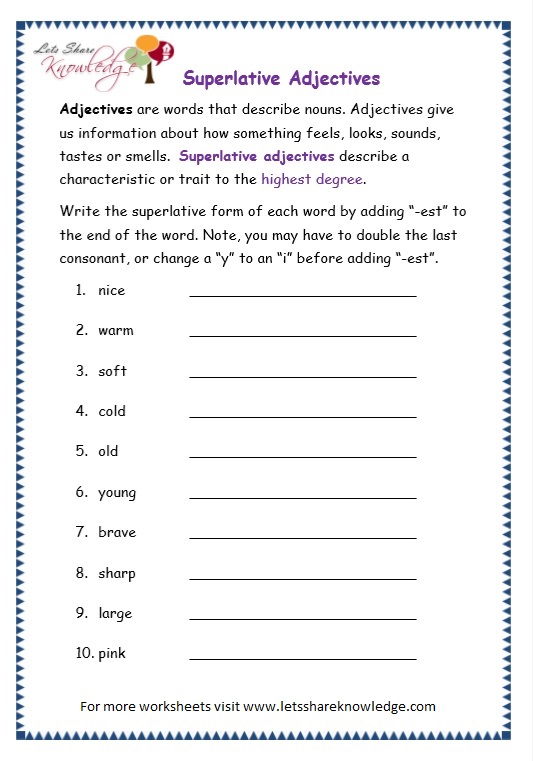 It is necessary to insert words to make a beautiful congratulation. (Text on pieces of paper)
It is necessary to insert words to make a beautiful congratulation. (Text on pieces of paper)
- Let's hear what happened. (Discussion and evaluation).
Write down your homework. Make a card for mom and sign it.
VI. Reflection.
-Summarize.
-How to identify adjectives?
-What is the role of the adjective in speech? (They answer based on the cluster)
- Evaluate your work in the lesson.
- What were the difficulties?
- Guys, you all did a good job. Let's praise ourselves!
We are students!
We are great!
Class 3 Russian lesson "Adjective name"
End of form
Lesson in 3rd grade. Subject: Adjective.
Item : Russian
Class: 3
Subject: Generalization adjective knowledge
Date: 03/18/2014
Type lesson: generalization and systematization lesson
Equipment : interactive whiteboard, computer, lesson presentation, technological map lessons, cards for working in pairs, badges for reflection, textbooks by V.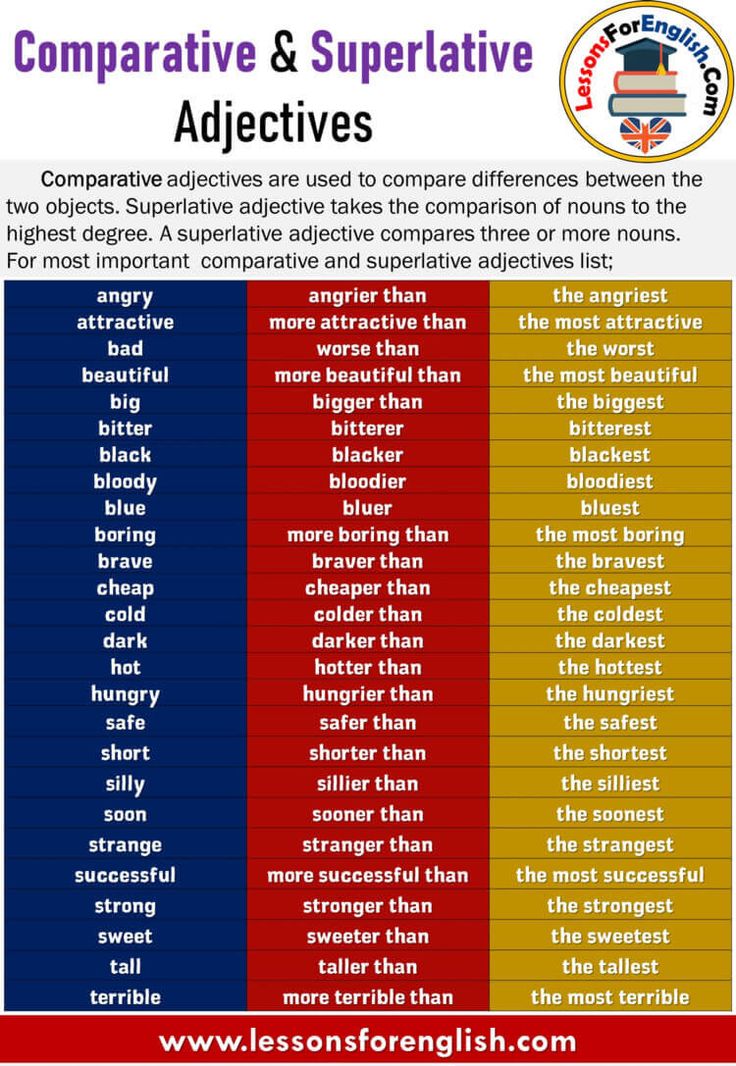 P. Kanakina, V. G. Goretsky "Russian language Grade 3", notebooks
P. Kanakina, V. G. Goretsky "Russian language Grade 3", notebooks
Purpose: Generalization and systematization of knowledge about the adjective.
Tasks:
Educational :
- generalize and systematize students' knowledge about the adjective as part of speech;
Educational :
- develop skills recognize adjectives in speech and writing, establish connection of adjectives with nouns, determine the gender, number and case of adjectives, write generic endings of names correctly adjectives;
- form UUD, study manage joint cognitive activity
Educational:
- to cultivate interest in the subject, the ability to work in pairs (communicative skills), to defend one's opinion, to respect the answers of other children;
- interest and respect for nature
Planned results:
Personal:
- educational and cognitive interest in the subject;
- broad motivational basis of educational activity;
- the ability to self-assessment based on the criterion of success of educational activities;
- value attitude to understand each other and to be understood oneself;
Meta-subject:
regulatory universal learning activities:
- formulate and hold a learning task;
- plan your action in accordance with the task;
- control their work and evaluate the correctness of the action;
- to be aware emerging difficulties and try to find ways to overcome them.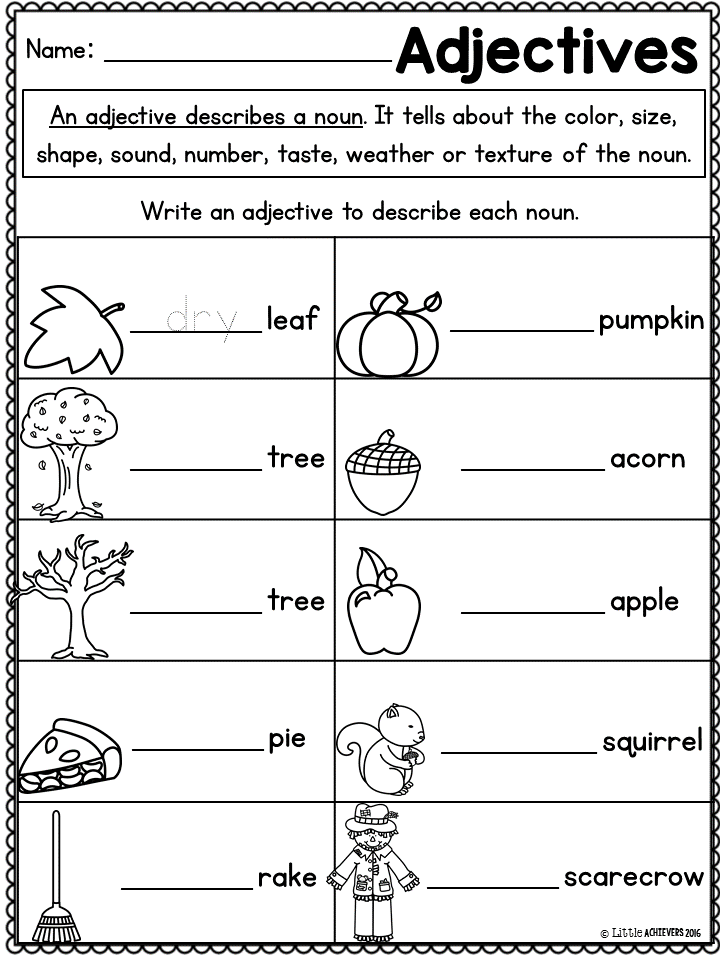
educational universal learning activities:
- listen, extracting the necessary information, correlate it with existing knowledge, experience;
- formulate conclusions based on the selection of essential features;
- conduct comparison;
- construct an oral explanation;
- build a logical chain of reasoning.
communicative universal learning activities:
- learn to build speech statements, participate in the discussion of the content educational material, formulate and prove their own opinion, learn to cooperate with a classmate, with classmates
Subject:
- identify, find and form adjectives;
- recognize the signs of an adjective;
- put questions from nouns to adjectives;
- establish a connection between an adjective and a noun;
- determine the number, gender and case of adjectives;
- match nouns with lexically appropriate names adjectives;
- write adjectives correctly and highlight them in writing.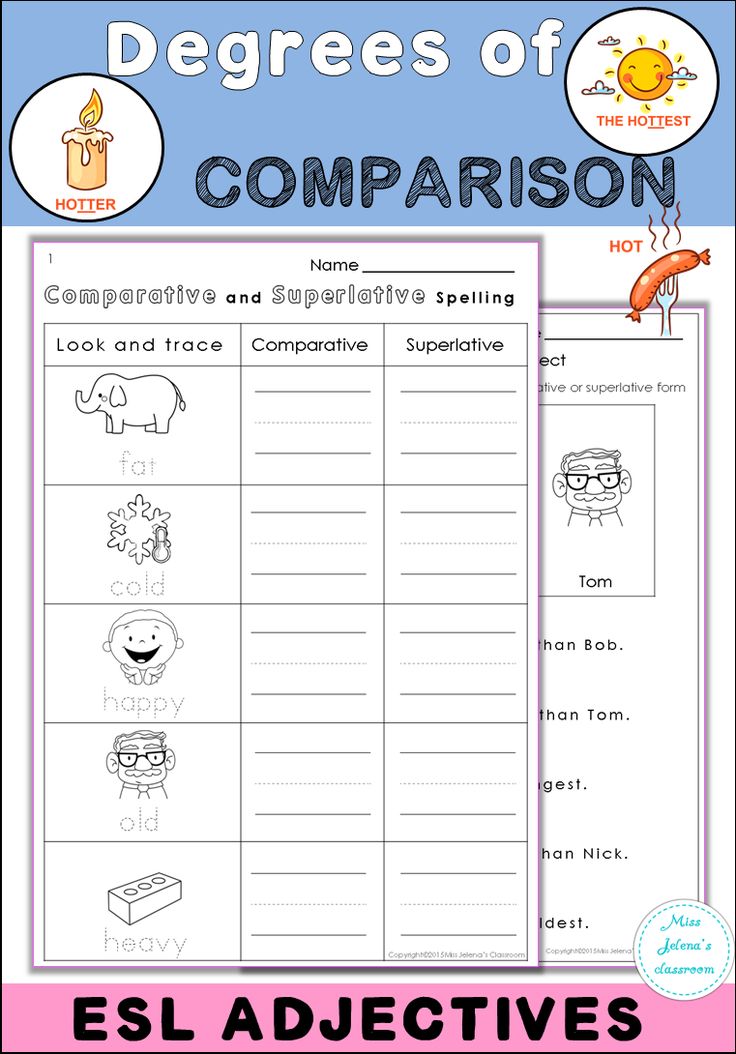
Plan lesson:
1 moment.
Now check it out mate,
Are you ready to start the lesson?
Is everything in place,
Is everything in order,
Pen, book and notebook?
Is everyone sitting correctly,
Is everyone looking attentively?
- Guys Show with cards, what mood are you in right now?
- I hope , by the end of the lesson, it will also be good for you.
$ 1 2. goals and objectives of the lesson. Motivation of educational activity.
Let's try with you determine the topic of our lesson - Listen to the words, remembering the first syllables in order, say them together. You will get a new word. Write it down.
MO Loko Not B TA RELKA
RA MA FI TA RACAN
Ren NYU NYU NYU NYU NYU NYUS0003
COIN
ROCKET
BLUE
- What is the structure of words like? (Words have three syllables - trisyllabic)
-Which word is superfluous? Why?
Students:
- Extra word BLUE.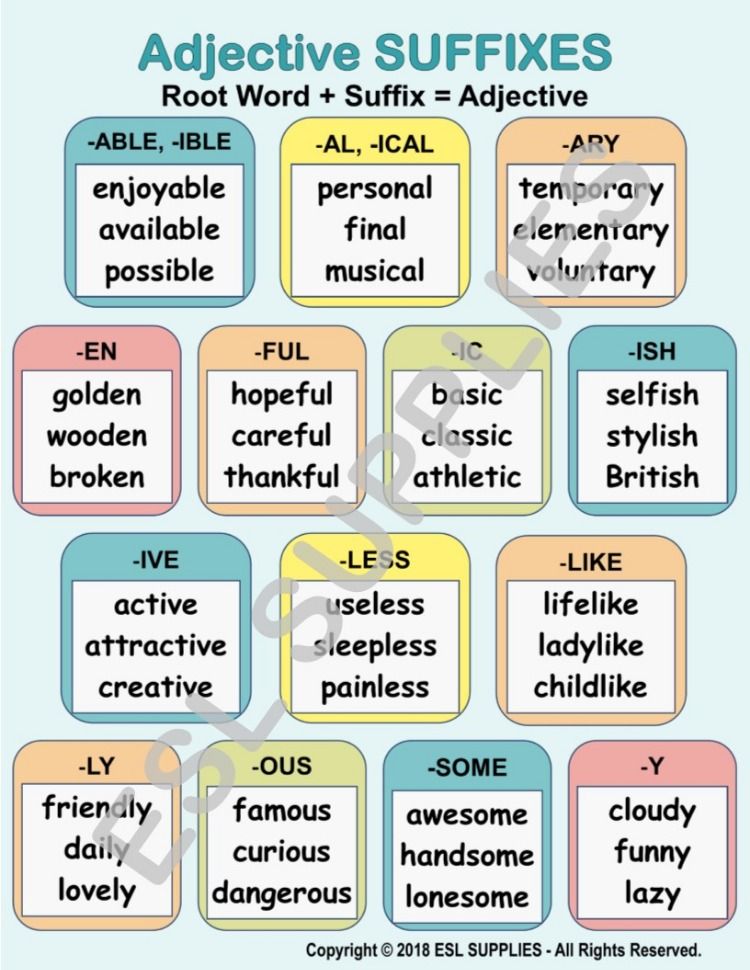
Possible answers of children:
- Adjective, other words are names nouns.
Teacher:
- What do nouns call?
(give an example: table, cupboard, chair…)
- What are adjectives called?
(cold, light, high ....) (Signs of objects)
- What does the word blue call? (color)
We today we will write again,
Do conclusions and reasoning.
A so that the lesson goes to everyone's future,
Actively Get to work, my friend!
3. Preparatory work for the letter
Teacher: Guys, tell me, please, how do you start your morning? (Morning starts from getting up, from charging, from breakfast).
-Correct, every morning we start with physical exercises
Entry dates and class of work 2 slide
Therefore open notebooks and write down today's date, class work
4. A moment of cleansing.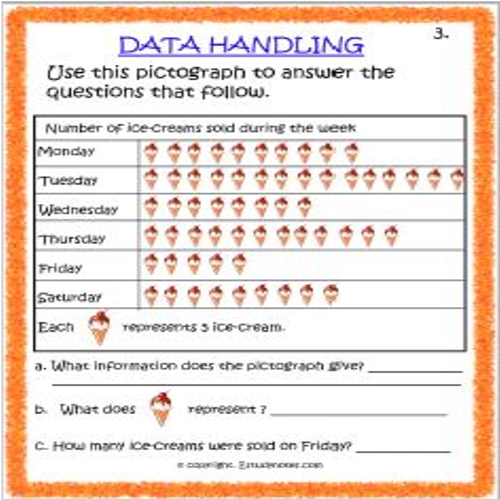
Calligraphy (on the board) 3 slide. yay yyyyyyyyyyyyyyyyyyyyyyyyyyyyy ee
- Read the line of calligraphy in chorus.
- What does she remember? (ending them. adjectives)
- Write it down by connecting the letters correctly.
-line divide into groups. (Checking 1 person at the blackboard).
(Generic - aya, ya - f.r., oi, oy, oh - m.r., oh, her - cf.r., ye, ne - pl.)
What endings were included in group 1, 2,3,4?
5. Correlation questions with adjective endings. 4 slide . Match questions and adjective endings.
And now we are with you we will fly in balloons, but for this we must perform this exercise. Plant each adjective in its own bowl. Working with interactive board.
(Three students go out to the blackboard in turn and complete the task.)
And now, guys, we together we will check whether the guys completed the task correctly.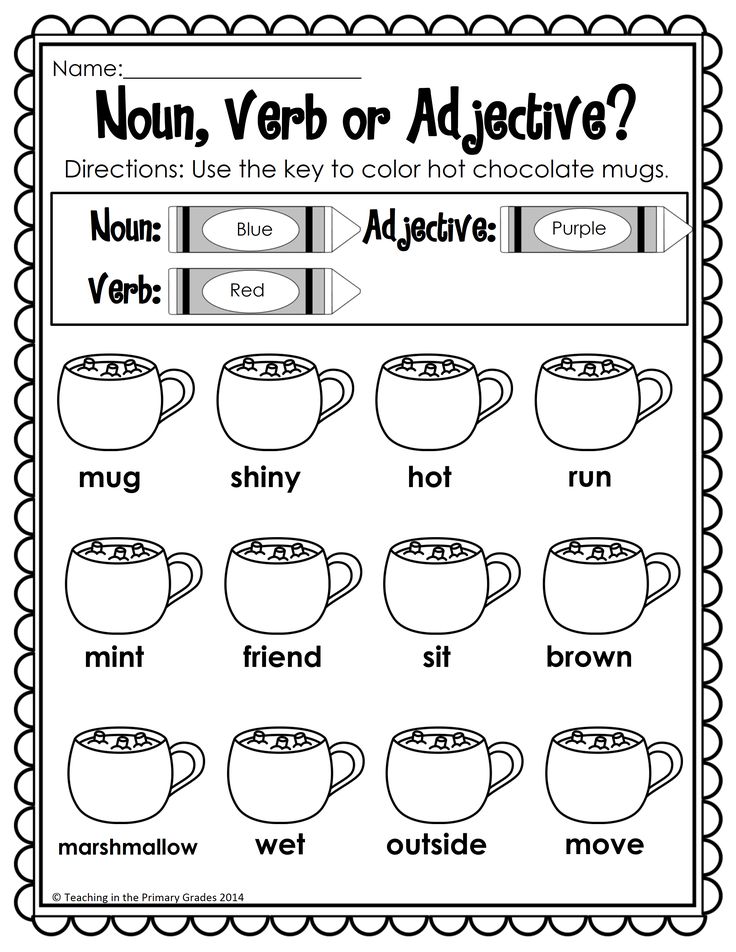 That's right, well done.
That's right, well done.
So what questions and what endings have masculine, feminine and adjectives? neuter?
(children's answers)
6. Vocabulary Job. (Inter. Board) Slide 3
I I know you are very smart and quick-witted guys. That's why I've prepared a game for you which is called "Let's play - guess"
House green is cramped,
Narrow, long, smooth.
B sit side by side at home
Round guys.
(Pea + picture)
Which this word. The correct word is from the dictionary. Find the adjectives in the riddle. Now please _______ come to the board and underline these names. adjectives.
If growing under the window,
Bush beautiful, fragrant,
To fill your whole house,
Fragrant pleasant smell!
(Lilac + picture) Slide 4
A when the lilac blooms.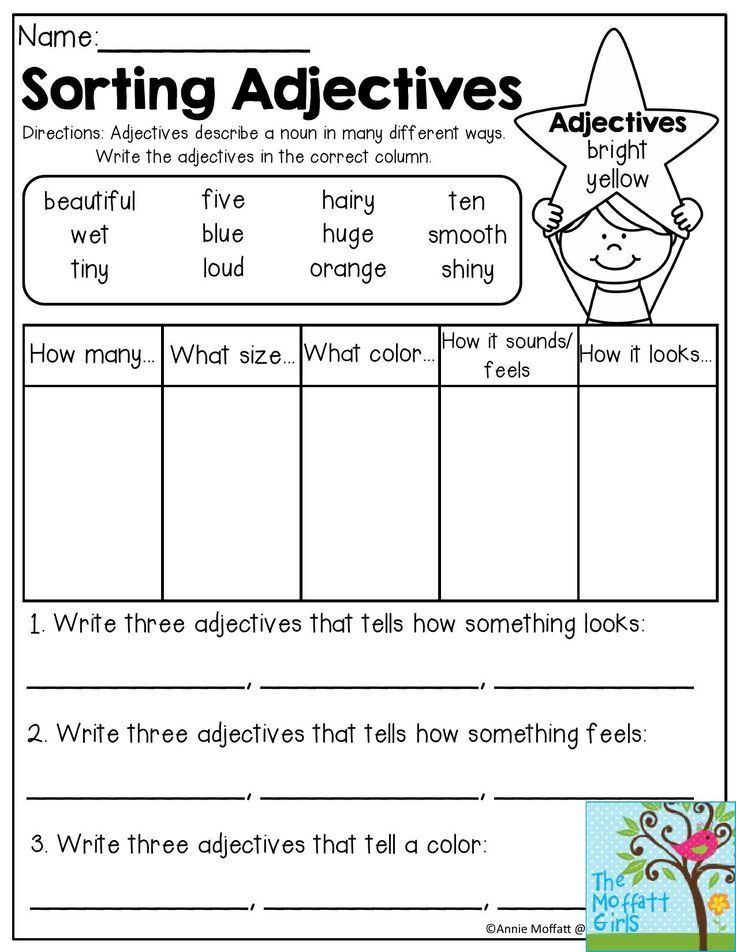 In what month? (In May) Right.
In what month? (In May) Right.
What this word. The correct word is from the dictionary. Find the adjectives in the riddle. Now please _______ come to the board and underline these names. adjectives.
Green leg,
Red Bud,
Narrow leaves
Victory flower!
(Carnation + drawing) Slide 5
- Guys, on what holidays do these flowers give? Who can see them in their hands? (Veterans)
- A what is the big event this year in our country?
(70 anniversary of the Victory)
_We must respect them, and honor the memory of those who died in this war.
What this word. The correct word is from the dictionary. Find the adjectives in the riddle. Now please _______ come to the board and underline these names. adjectives.
Independent work.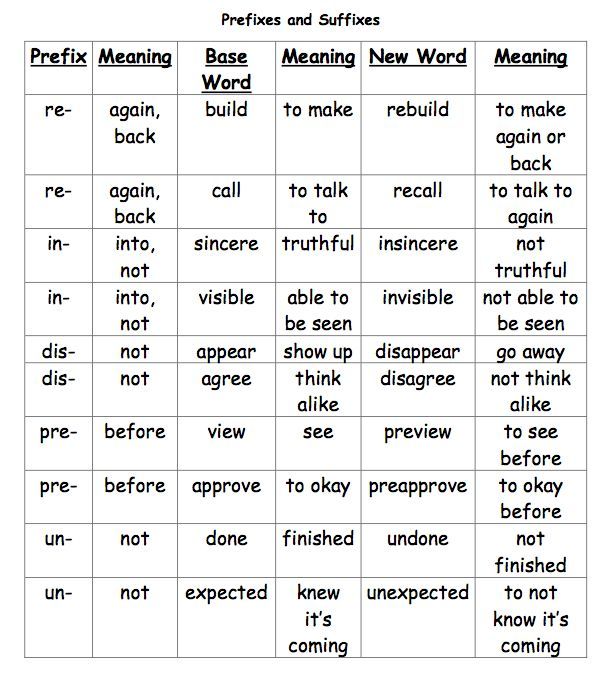 Exercise in finding an "extra" word, determining the number and gender of adjectives.
Exercise in finding an "extra" word, determining the number and gender of adjectives.
Now we will conduct independent work. Pay attention to the board.
There are words in front of you on the blackboard.
Find "extra" word in each line: Slide 6
blush, turn white, green , blacken.
Sun, sea, salty , cloud.
High, far, tasty, good .
Light , summer, soft, kind.
"unnecessary words.
One the student goes to the blackboard, the rest do it on their own in notebooks)
- you don't look at the board.
- Now we are going to check.
What unites them? (adj.) How to determine the number and gender, if there is no noun?
What help us determine the number and gender? (end, question) (we are working pencil)
Work by textbook.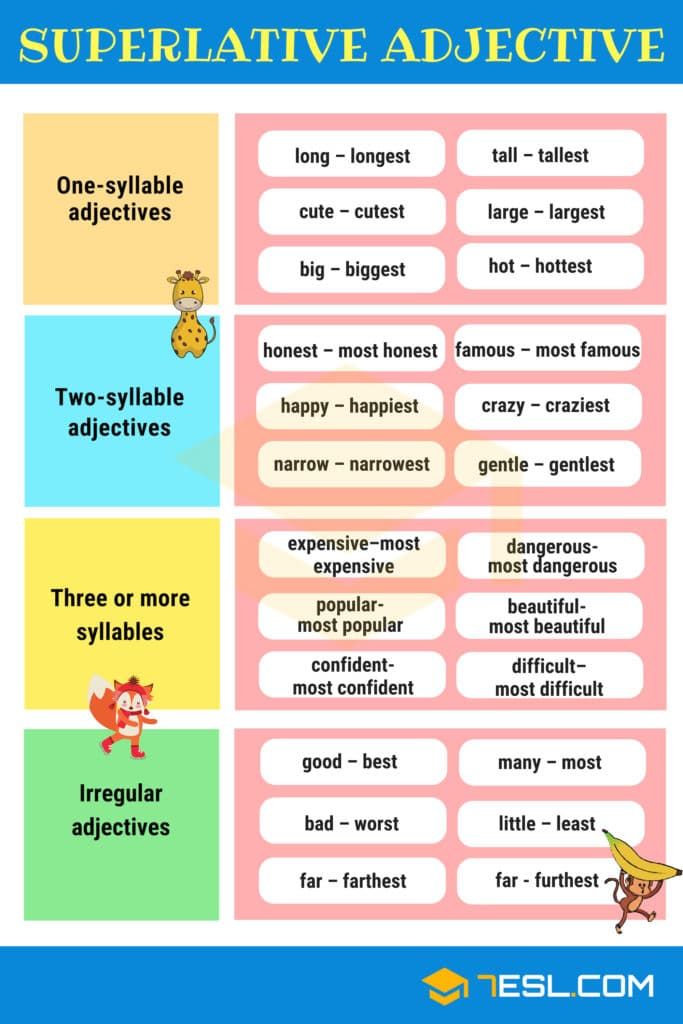
- Guys, now open textbooks on page 85, find exercise 149.
Let's read exercise .
Read phraseological units and explain their meaning.
Living in someone else's mind is not have your own opinion; from a pure heart - with all my heart, sincerely; according to hot pursuit - act immediately; make hastily - make quickly, carelessly; snail's step - go slowly; in black gloves - in severity; in a good hour - a wish of good luck.
And now let's do exercise. Make a proposal and write it down.
(Then several Students read their sentences)
8. Physical school
“Which? Which? And what kind? ”, -
We repeat together in unison.
We know these questions.
And we answer them:
“Which one?” - our cool lesson,
"What?" - blackboard,
"What?" - cool mood
Me and you.
We know adjectives,
We repeat in unison:
“We will never forget
These cool words!”
9. Continued work on the topic of the lesson.
Continued work on the topic of the lesson.
Guys guess the riddle.
Riddle: Snow and ice melts in the sun,
Birds come from the south,
And the bear is not up to sleep.
So, came to us ... (spring) ( 7 slide spring)
- That's right, it's spring - a wonderful and wonderful time of the year. At that time nature wakes up and comes to life after winter sleep.
-What changes occurred in nature with the advent of spring?
(Melting snow, the sun shines brighter, drops ring, streams flowed, days became longer, etc. e. birds have arrived)
-What Do birds benefit the forest?
-As can we prepare for the meeting of feathered friends?
-A do you like spring? (yes)
Yes talk a lot about spring.
10 . Work with texts (in pairs)
Read text: 8 slide:
The stage of consolidation of acquired knowledge.
1. The game "Answer quickly"
Purpose: work with the concept of a sign of an object.
One of the students names three adjectives denoting the characteristic properties of an object. Other students must quickly name an object that fits these features.
Weak students can be offered cards with the listed features:
Voiced, fast, cheerful ... (ball)
High, durable, brick ... (house)
red, fluffy, cunning ... (fox)
Green, prickly, elegant ... (Christmas tree)
9000 9000 9000 9000 7 . lesson outcomes. Reflection (9 slide).
Logic dictation.
|
| 1 | 2 | 3 | 4 | 5 | 6 | 7 | 8 | 9 | 10 |
| Yes |
|
| + | + |
|
| + | + | + | + |
| No | - | - |
|
| - | - |
|
|
|
|
Name adj.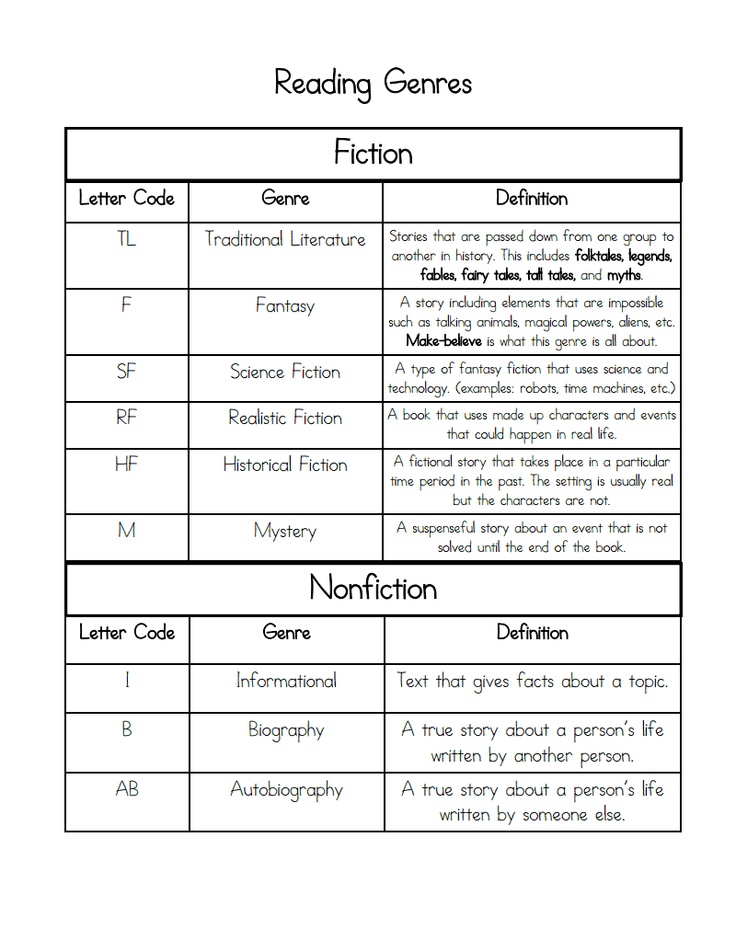 part of a word.
part of a word.
Names adj. answer questions who? what?
Names adj. indicate an attribute of an object.
Names adj. change by gender.
Names adj. There are only males and females, genders.
Names adj. do not change in numbers.
Names adj. are secondary parts of the sentence.
Names adj. related in gender and number to it. noun
Names adj. husband. genders have endings -y, -y
Names adj. female genders have endings -aya, -aya.
Evaluation
. Creative task - Compose and write down riddles about chamomile, about carrots, about apples. Use adjectives.
- To summarize:
- Remember what goal we set for ourselves at the beginning of the lesson (repeat all about adjective), analyze your work and continue the phrase:
Slide 10
I learned… (determine the gender and number of adjectives, write the ending correctly)
I realized that… (adj.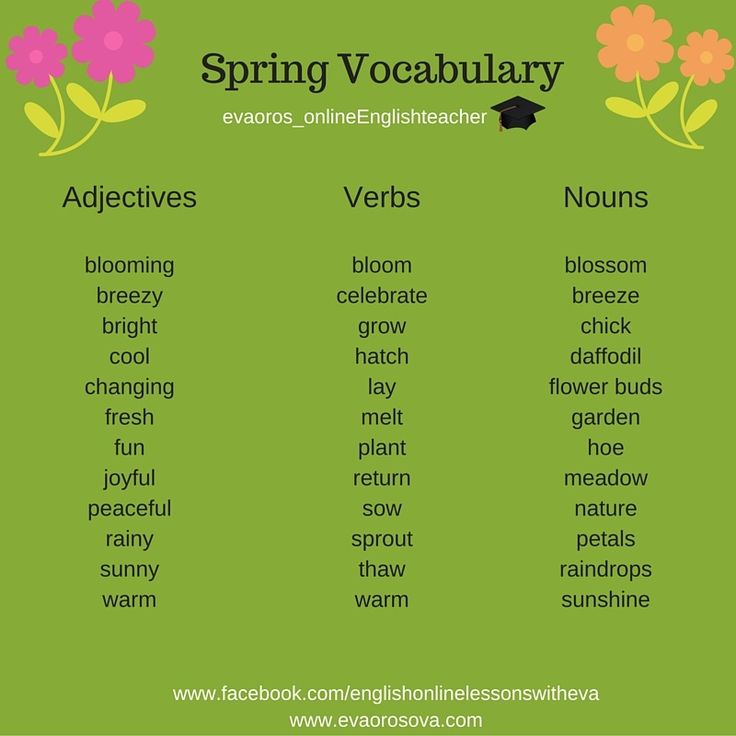
Learn more

